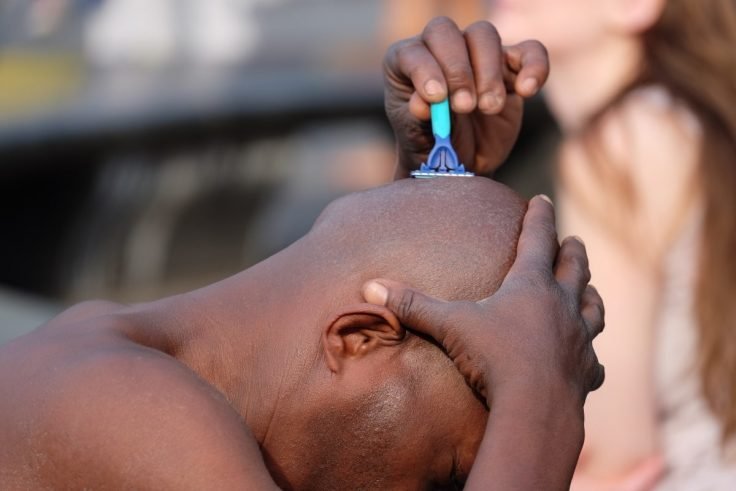Hereditary Pattern Baldness: 6 Things You Should Know

There are some things you don’t know (and myths you wrongfully believe) about baldness and hair loss. So let me clear things out!
It’s something every man dreads. You wake up and see a bunch of hairs on your pillow; you look in the mirror and notice that your hairline isn’t quite where it used to be.
Then you brush your hair or hop in the shower and see clumps of your precious locks falling out time after time.
Hair loss is a painless condition, but it can be a very stressful one and it affects countless people all over the globe.
It’s no wonder that we’ve been trying to combat baldness for thousands of years, dating all the way back to the times of the Ancient Egyptians.
What You Need To Know About Baldness
If you’re facing hair loss or worry about it in the future, here’s all you need to know:
1. You’re Not Alone
If you do notice the early signs and symptoms of hair loss, just know that you’re definitely not in the minority.
Statistics show that around half of men are affected by pattern baldness by the age of 50 and that percentage just keeps on climbing in older age groups.
It’s also important to note that hair loss isn’t just an issue for men to deal with. Around a quarter of women will have to handle hair loss by the age of 50, and many more will encounter the problem later in life.
2. It’s Not All About Your Genes
Many people believe that hair loss is totally reliant on genetics. While it’s true that genes can play a part in your likelihood of going bald later in life, they aren’t the only factor in play.
So, even if all the men in your family have gone bald, you won’t necessarily have the same fate.
Hereditary pattern baldness is the most common form of hair loss, but if you start losing your hair, it could also be due to your lifestyle, your environment, some medications or supplements you’re taking at the time, or even a sign of an underlying medical condition.
3. It Can Be Treated
As stated earlier, people have been trying to cure and treat hair loss for thousands of years.
In the past, options were limited and most people simply had to accept that their hair loss was going to happen, regardless of what they did.
Now, however, there are real medical and technological breakthroughs in the field of hair loss research, and you have a lot of options to choose from.
Laser treatment caps from Illumiflow can stimulate hair growth and special serums and shampoos can strengthen your hair and make it less likely to fall out.
4. Blame Your Mom
A lot of men have a tendency to look at the males in their families who are bald and blame them if they suffer from hair loss too.
However, studies have actually shown that if you want to blame anybody, you should be pointing the finger at your mother.
Research has revealed that the genetic signals that trigger male pattern baldness come from the X chromosome, which is inherited from the mother, not the father.
Either way, it’s nobody’s fault really, as none of us can control our genetics.
5. It Can’t Hurt To Look After Yourself
Hair loss is still a very complex issue and we have a lot to learn about it. However, studies have linked accelerated hair loss with high stress levels, anxiety, depression, and various lifestyle choices like smoking or having a poor diet.
While there is still plenty of research to be done in these areas to really find out the true links between lifestyle and pattern baldness, it’s clear that looking after yourself isn’t a bad idea.
Having a healthy diet, treating your hair with care, using good quality products, and trying to de-stress whenever possible are all positive actions you can take.
6. It’s Nothing To Do With Testosterone
There’s a bit of a myth that baldness is connected with testosterone, with some people saying that high testosterone levels lead to hair loss. In truth, there’s no scientific evidence to support this claim at all.
DHT, a by-product of testosterone, can cause hair loss in some people but is perfectly tolerated by others, so it all varies from one person to the next.
So whether you have high or low T levels, you don’t need to worry about them affecting your head of hair.
Hopefully, now you know more than before about baldness, hair loss treatments, and the roots of this male condition.